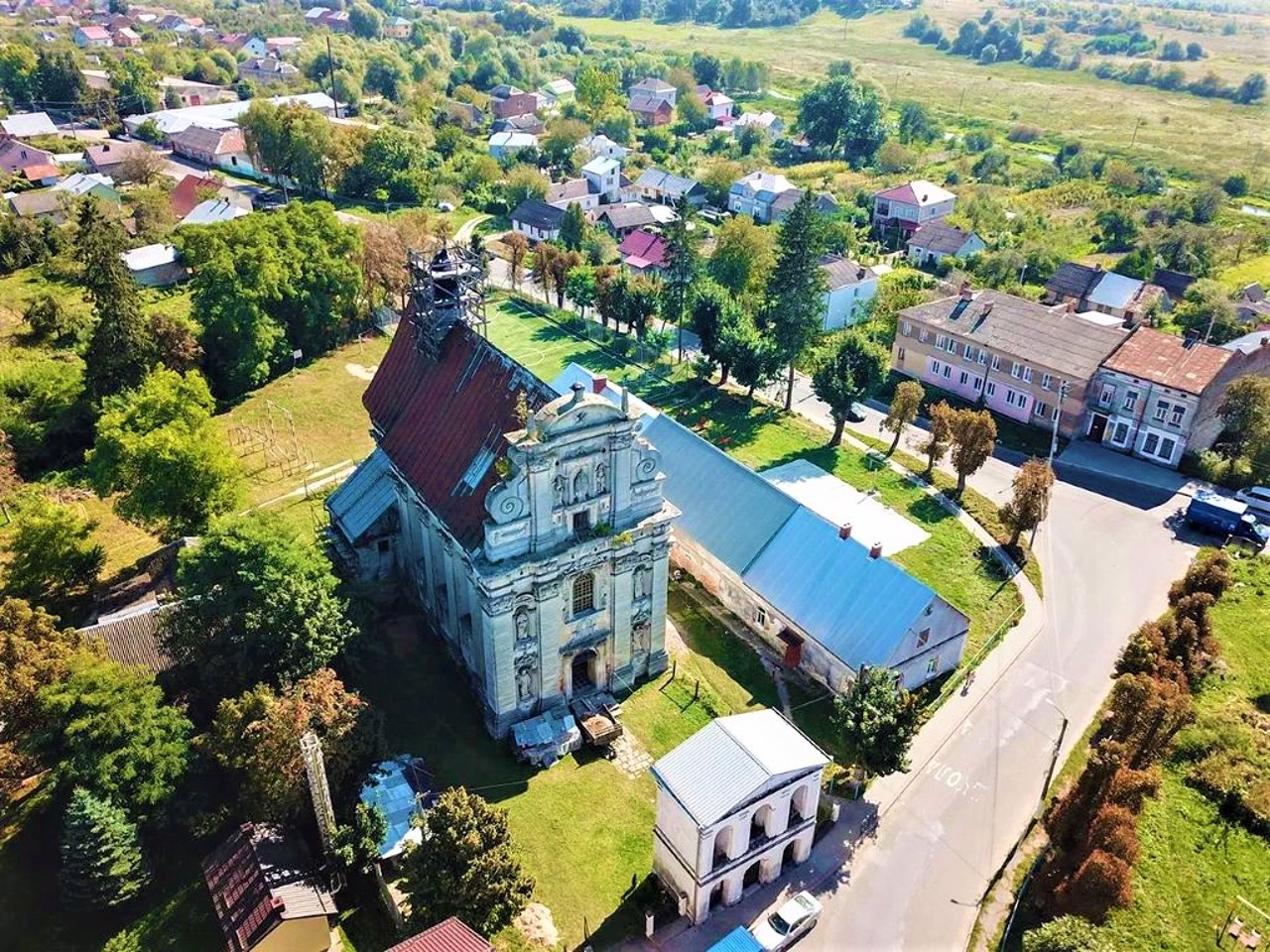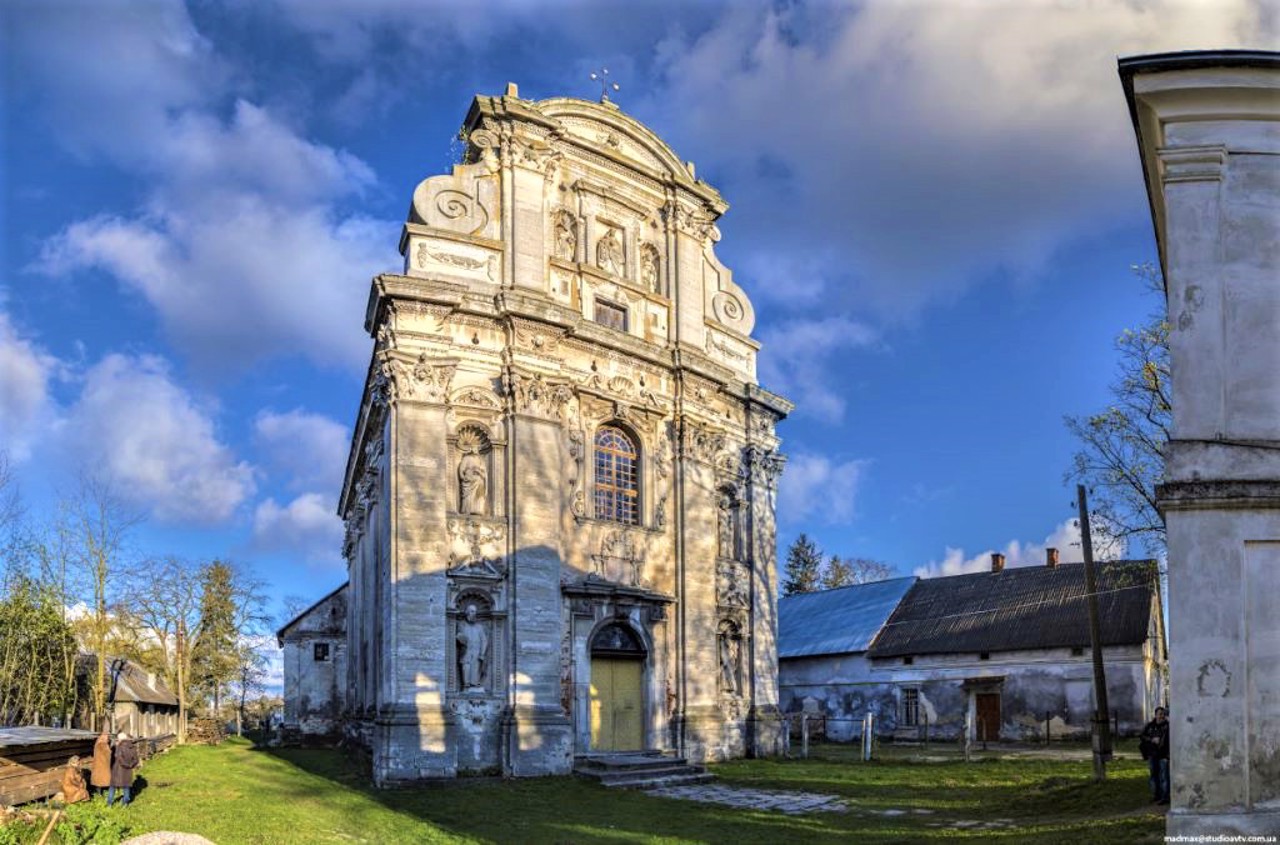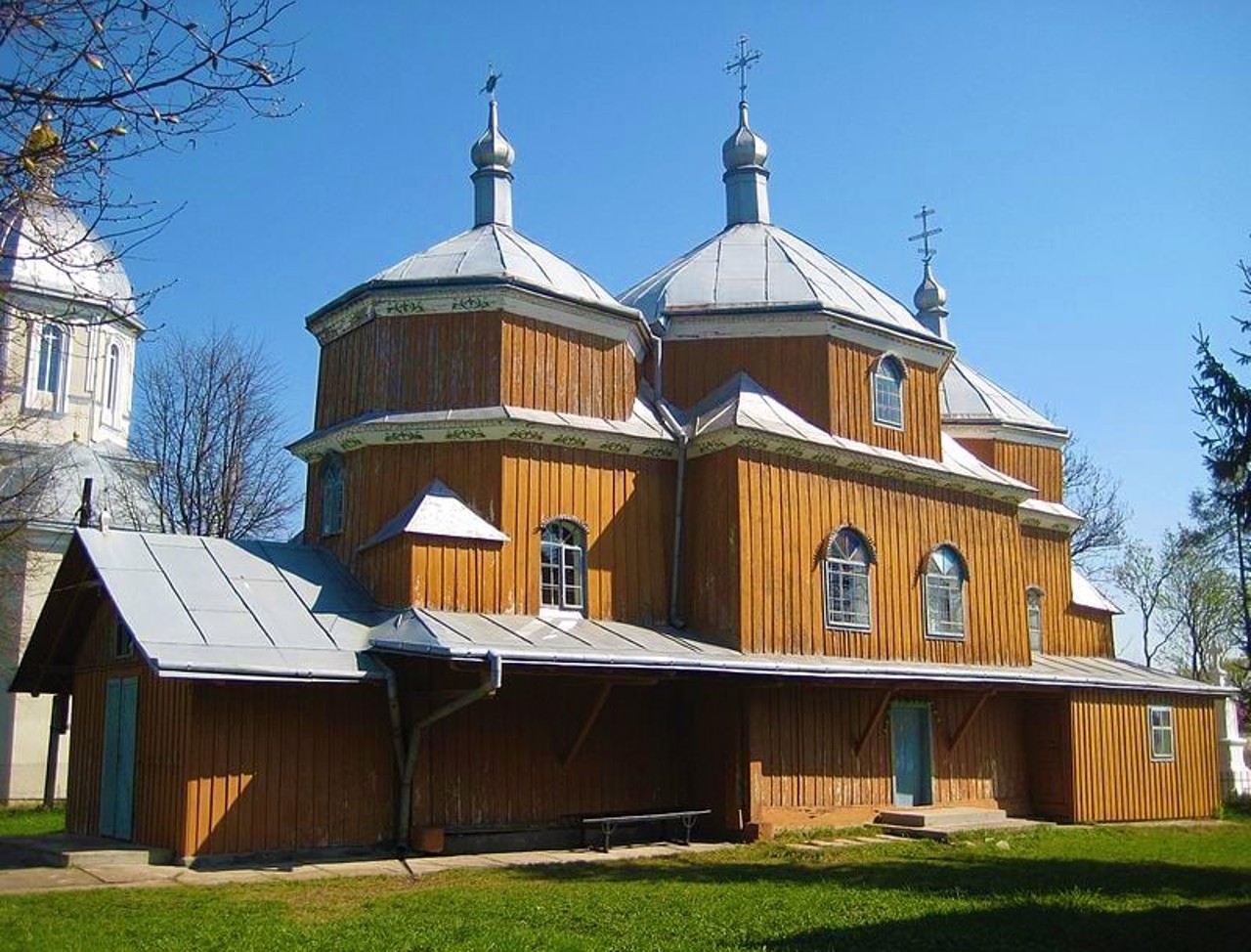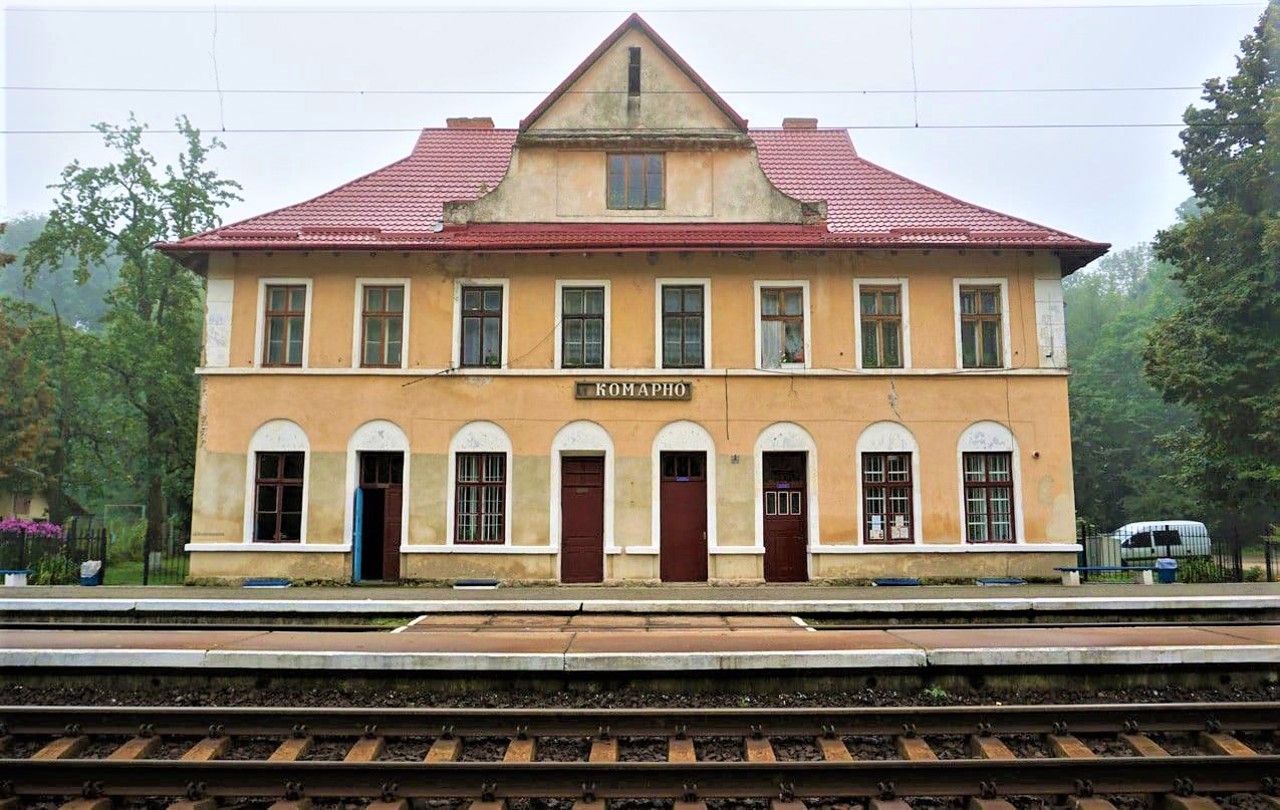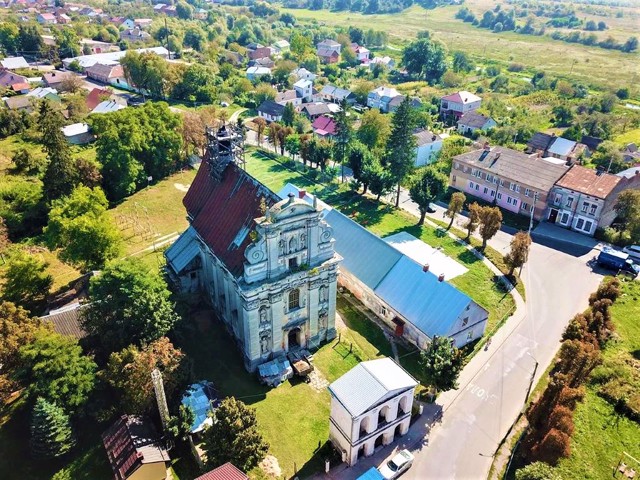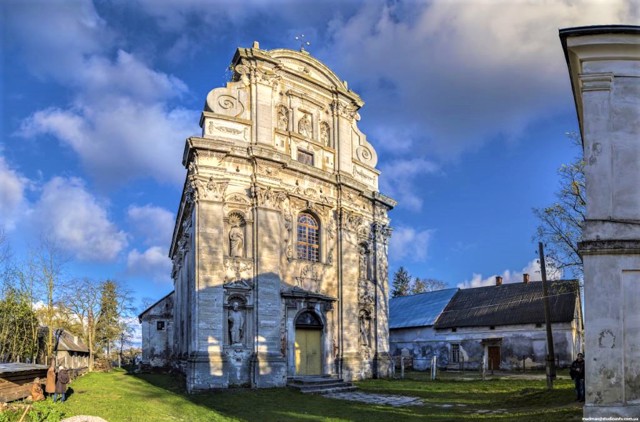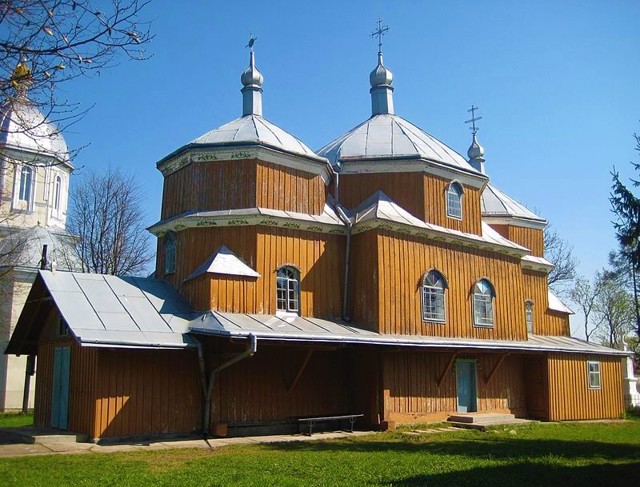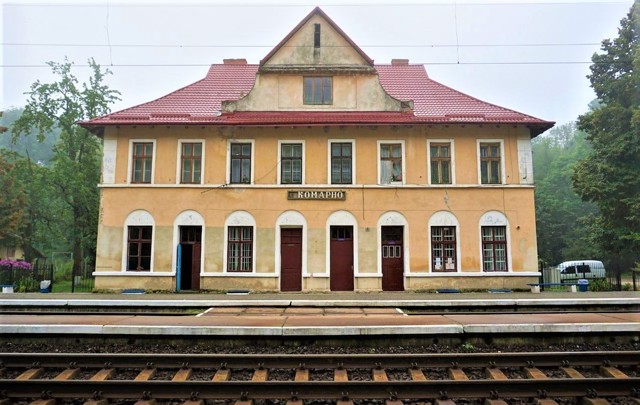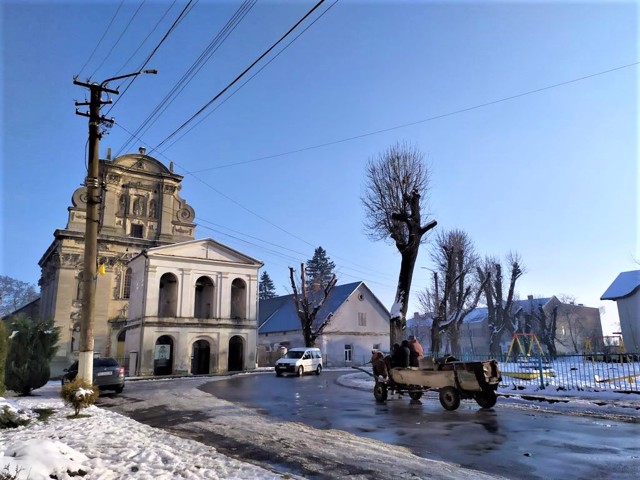Functional temporarily unavailable
General information about Komarno
The city of Komarno on the Vereshchytsia River is located 40 kilometers northwest of Lviv.
It has been known since 1471, although it existed earlier - first as part of the separate Zvenyhorod principality, then under the rule of Polish feudal lords. The name is associated with mosquitoes, which were plentiful in the swamps surrounding the city.
In 1473, the Halych and Terebovlia elder Stanislav of Khodech received the Magdeburg right for Komarno, built a castle (the ramparts have been preserved) and the first wooden church. The city was well fortified with walls and towers, which, combined with natural obstacles, made it almost impregnable and allowed it to withstand repeated sieges in the 16th and 17th ...
The city of Komarno on the Vereshchytsia River is located 40 kilometers northwest of Lviv.
It has been known since 1471, although it existed earlier - first as part of the separate Zvenyhorod principality, then under the rule of Polish feudal lords. The name is associated with mosquitoes, which were plentiful in the swamps surrounding the city.
In 1473, the Halych and Terebovlia elder Stanislav of Khodech received the Magdeburg right for Komarno, built a castle (the ramparts have been preserved) and the first wooden church. The city was well fortified with walls and towers, which, combined with natural obstacles, made it almost impregnable and allowed it to withstand repeated sieges in the 16th and 17th centuries.
The magnificent Church of the Nativity of the Virgin in the style of the transition from the Renaissance to the Baroque, built in 1658 at the expense of Mykolay Ostroroh, has survived to this day.
Among the owners of Komarno at different times were the Vyshnevetsky, Ohynsky, and Liantskoronsky. The latter belonged to a palace in the style of classicism (XIX century), the ruins of which have been preserved in an abandoned park.
Three Orthodox churches have also been preserved - the wooden Michael Church (1754), the stone church of Saint Michael the Archangel (1910) and the Peter and Paul Church (1848) are located next to it.
At the exit from Komarno in the direction of Mykolaiv, you can see a tall monument erected in 1663 in honor of the victory over the Turks and Tatars.
Місто Комарно на річці Верещиця розташоване в 40 кілометрах на північний захід від Львова.
Відоме з 1471 року, хоча існувало і раніше - спочатку в складі удільного Звенигородського князівства, потім під владою польських феодалів. Назву пов'язують з комарами, яких було вдосталь серед боліт, що оточували місто.
В 1473 році галицький і теребовлянський староста Станіслав з Ходеча отримав для Комарно Магдебурзьке право, побудував замок (збереглися вали) і перший дерев'яний костел. Місто було добре укріплене стінами та вежами, що в поєднанні з природними перешкодами робило його майже неприступним і дозволило неодноразово витримувати облоги в XVI-XVII століттях.
Зберігся понині чудовий костел Різ ...
Місто Комарно на річці Верещиця розташоване в 40 кілометрах на північний захід від Львова.
Відоме з 1471 року, хоча існувало і раніше - спочатку в складі удільного Звенигородського князівства, потім під владою польських феодалів. Назву пов'язують з комарами, яких було вдосталь серед боліт, що оточували місто.
В 1473 році галицький і теребовлянський староста Станіслав з Ходеча отримав для Комарно Магдебурзьке право, побудував замок (збереглися вали) і перший дерев'яний костел. Місто було добре укріплене стінами та вежами, що в поєднанні з природними перешкодами робило його майже неприступним і дозволило неодноразово витримувати облоги в XVI-XVII століттях.
Зберігся понині чудовий костел Різдва Богородиці в стилі переходу від ренесансу до бароко збудований у 1658 році коштом Миколая Остророґа.
Серед власників Комарно в різні часи були Вишневецькі, Огинські, Лянцкоронські. Останнім належав палац в стилі класицизму (XIX століття), руїни якого збереглися в занедбаному парку.
Також збереглися три православних храми - дерев'яна Михайлівська церква (1754 рік), розташований поруч з нею кам'яний храм Святого Архистратига Михаїла (1910 рік) та Петропавлівська церква (1848 рік).
На виїзді з Комарно в бік Миколаєва можна побачити високий монумент, споруджений в 1663 році на честь перемоги над турками та татарами.
Сплануй своє перебування у Komarno
What to see and where to go in Komarno
Tourist attractions and museums of Komarno
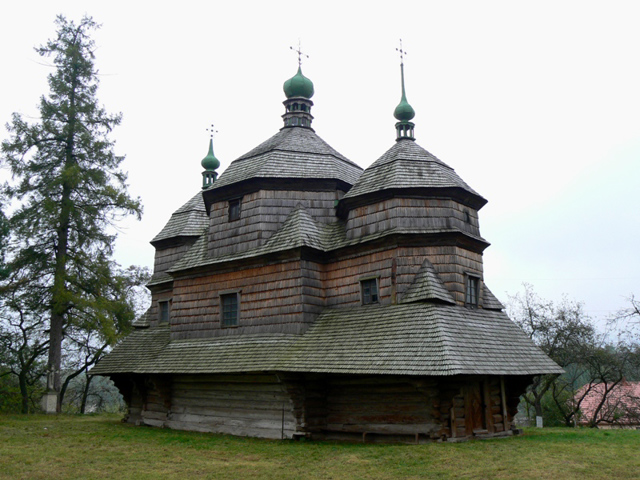
Archangel Michael Church
Temple , Architecture
The wooden church of Archangel Michael in the city of Komarno was built in 1754.
One of the best examples of the Galician school of folk architecture. The three-log three-headed temple has undergone several reconstructions, the last of which, carried out in 1965-1967 under the leadership of architect Ivan Mohytych, returned it to its original appearance.
An interesting feature of St. Michael's Church is the east log with archaic tiny niches to the north and south. In the interior there is a monumental painting of the 18th century.
To the west of the church is a three-tier bell tower with a tented finish, the lower tier of which is surrounded by a porch on brackets of the original structure.
Nearby is the new brick church of Saint Michael the Archangel (1910).
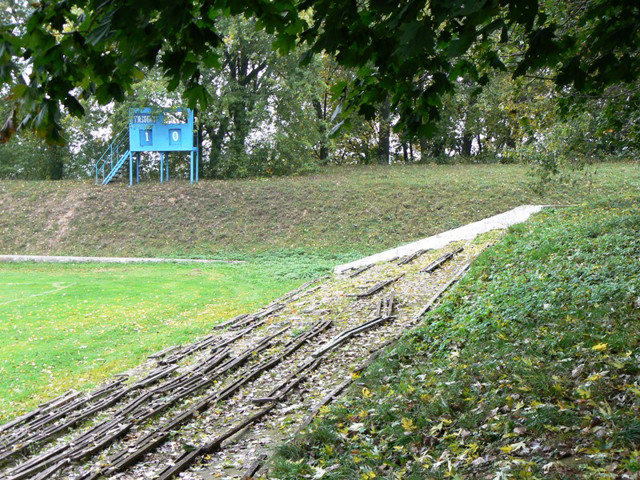
Komarno Castle
Castle / fortress
The earth ramparts of the bastion-type Komarno castle have been preserved in the city of Komarno at the exit towards Peremozhne.
The castle was founded in the 15th century by the Galician elder Stanislav Khodetskyi. In the 18th century, the castle lost its importance after the owner of Komarno, Antoniy Yuzef Lyantskoronskyi, built a new tycoon's residence nearby.
Now the Komarno Castle is used as a stadium "Gazovik" with a football field in the castle yard and tribunes on ramparts with corner bastions that are clearly visible. Nearby is an old Victorian brick building, which now houses one of the buildings of the city hospital.
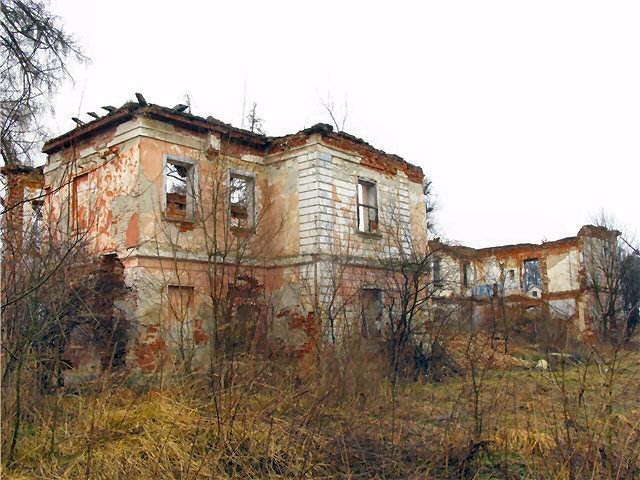
Lyantskoronsky Palace
Palace / manor , Architecture
The Lyantskoronsky manor in the city of Komarno was founded in the 18th century opposite the old castle. The palace in the style of classicism was built at the end of the 19th century.
Until 1939, a Polish school was located in the estate. During the Second World War, the Lyantskoronsky palace was badly damaged and has not been restored since then, now it is in ruins. The park is in a very neglected state.
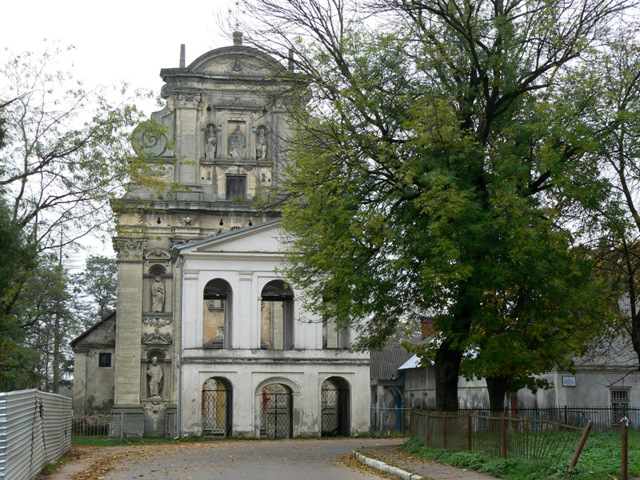
Nativity of Holy Virgin Church
Temple , Architecture
The Defense Church of the Nativity of the Holy Virgin in Komarno was founded in 1656 at the expense of the magnate Mykolay Ostroroh, who owned the city. Consecrated in 1658.
Architects Voytsekh Kapinos and Yan Pokorovych are named as possible authors of the project, although both died long before construction began.
The wonderful architecture of the Church of the Nativity is a vivid example of the transition from the Renaissance to the Baroque. Typical Renaissance elements are the framing of the main entrance and niches with sculptures, as well as pilasters with cherub heads. At the same time, the pediment of the facade and the framing of the central window are characteristic of the Baroque style.
The facade is decorated with numerous sculptures of saints and complex white stone carvings (it is assumed that the master who designed the facade of the Jesuit church in Lviv participated in the construction).
The defensive character of the building is revealed by the key loopholes located along the perimeter along the eaves.
In the middle of the 18th century, a bell tower in the form of a triumphal arch was built next to the church.
In 1946, the church was closed, part of the church property was taken to Poland. In 1992, the Church of the Nativity of the Virgin was handed over to the Greek Catholic community of Komarno.
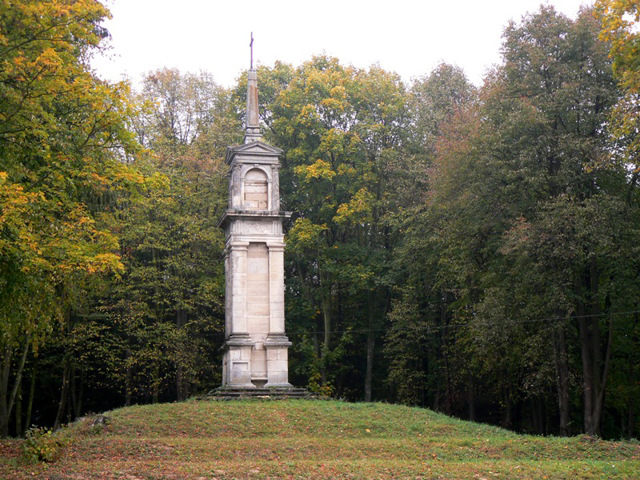
Roadside Monument
Monument
The mysterious monument, located by the road leading from the city of Komarno to the village of Kletsko, causes controversy about what it was erected in honor of. On the pedestal of the three-meter obelisk there is a Latin inscription: "My death is your life" and the dates "1641" and "1663".
According to the official version, the monument was built in honor of the victory over the Turks and Tatars. Some associate it with the events of 1672, when the Polish troops of Crown Hetman Yan Sobeskyi defeated the Tatar army of Nureddin-Sultan, which was five times larger, near Komarno, but this does not explain the dates indicated on the monument. Other researchers consider the obelisk to be a tombstone on the grave of a young nobleman who lived in the specified period. It is also possible that the monument was erected in honor of the construction of the Church of the Nativity of the Virgin, and the dates indicate the year of the destruction of the old wooden church and the final completion of the construction of the new one.
Reviews Komarno
Geographical information about Komarno
| {{itemKey}} | {{itemValue}} |
|---|---|
| Region |
Lviv |
